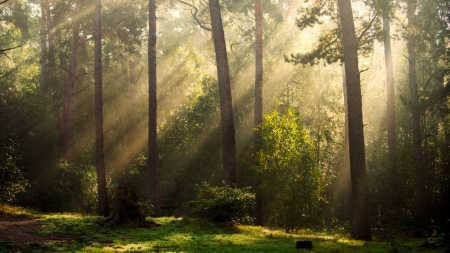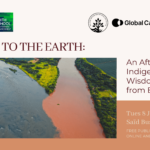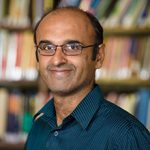Captured sunshine: what can an energetic view of life on Earth tell us about nature decline and recovery?
Yadvinder Malhi
- Start Friday 16 Feb 2024 4:15pm
- Finish Friday 16 Feb 2024 5:15pm
- Watch seminar recording (external site)

The biosphere was first described as “a planetary membrane for capturing, storing and transforming solar energy” (Vernadsky, 1926). Every living organism and organism function in the biosphere is united, and can be compared, by the cascade of captured sunshine that powers it. But beyond powerful imagery, can an energetics approach to ecosystems yield a practical contribution to understanding how increasing human pressure is altering ecological function, and be a tool for assessing effectiveness of nature recovery? This talk explores this potential with a focus on plants, birds and mammals, the best documented taxonomic groups, in the context of terrestrial ecosystems. I draw on examples from Wytham Woods, intact and logged tropical forests in Borneo, and a broad regional examination of sub-Saharan Africa. An energetic approach to understanding life an earth can yield some surprising and provocative insights into our changing biosphere.
Biography:
Yadvinder Malhi CBE FRS is Professor of Ecosystem Science at the Environmental Change Institute, School of Geography and the Environment, and Jackson Senior Research Fellow at Oriel College.
Professor Malhi explores the functioning of the biosphere and its interactions with global change, including climate change. He has a particular fascination with and love for tropical forests, though he has recently been spotted in ecosystems ranging from savannas, the Arctic, tropical coral reefs and Oxfordshire’s woodlands and floodplain meadows.
He looks at how natural ecosystems may be shifting in response to global atmospheric change, and how protecting or restoring natural ecosystems can help tackle climate change, and help adaptation to the consequences of climate change.
His team at the Environmental Change Institute is known for collecting intensive field data from fascinating but sometimes tough and remote forests. They have ongoing programmes of research in Asia, Africa, the Amazon and Andes regions, and Oxford’s own Wytham Woods. A new recent focus has been on nature recovery and biodiversity restoration in the UK.
While addressing fundamental questions about ecosystem function and dynamics, his research findings are significant for conservation and adaptation to climate change. He is a Trustee of the Natural History Museum of London, President-Elect of the British Ecological Society, chairs a number of programmes on biodiversity at the Royal Society, and is a scientific advisor on nature restoration for the UK government and the government of Scotland.
He leads an active Ecosystem Dynamics research lab focussing on forest vegetation-atmosphere interactions, employing field studies, satellite remote sensing and ecosystem modelling.
Research:
The broad scope of my research interests is the impact of global change on the ecology, structure and composition of terrestrial ecosystems, and in particular temperate and tropical forests, though recently I have been spotted a few times in the Antarctic and Arctic … This research addresses fundamental questions about ecosystem function and dynamics, whilst at the same time providing outputs of direct relevance for conservation and adaptation to climate change. We apply a range of techniques including field physiological studies, large-scale and long-term ecological monitoring, social sciences methods, satellite remote-sensing and GIS, ecosystem modelling, and micrometeorological techniques.
My team has a reputation in collecting intensive field data from fascinating but sometimes tough and remote forests, and linking these data to models and satellite data to address global issues surrounding tropical forests.
My university post is supported by the Jackson Foundation, and our global research is funded by grants from the European Research Council, the Natural Environment Research Council, and others.
The Leverhulme Centre for Nature Recovery and Biodiversity Network are interested in promoting a wide variety of views and opinions on nature recovery from researchers and practitioners.
The views, opinions and positions expressed within this lecture are those of the author alone, they do not purport to reflect the opinions or views of the Leverhulme Centre for Nature Recovery/Biodiversity Network, or its researchers.


